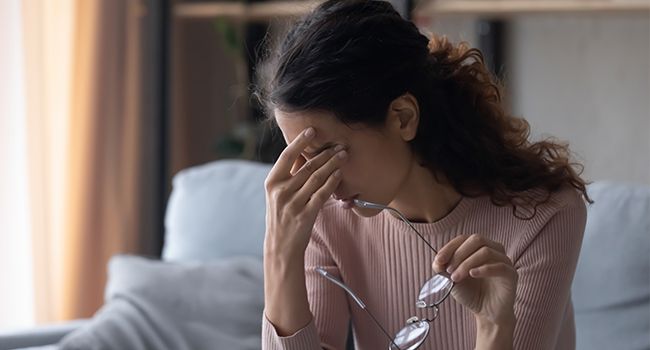
One of the most terrifying aspects of the COVID-19 pandemic is that we still don’t know all the ways the virus affects the body. Researchers have been uncovering not only new strains of the virus but also new ways in which it is damaging one’s organs. The French Society of Neuroradiology recently conducted a survey that revealed that patients must be wary of specific eyesight issues after COVID. Let’s find out what these are!
Three Common Eyesight Issues After COVID-19
Eyesight issues after COVID are rather rare. However, you must still be vigilant about them to be able to take the appropriate preventive measures for your health. Keep an eye out for
Conjunctivitis
According to researchers, 1-3% of patients with COVID-19 develop conjunctivitis. How does this happen? Well, if the virus infects the conjunctiva in the eye, you can develop conjunctivitis. A few noticeable signs of the infection include redness in the eyes, swelling around the eye socket, and even itchiness.
How can you protect yourself?
One of the best ways to protect yourself from developing conjunctivitis or even coronavirus is by washing your hands frequently. If you have a habit of rubbing your eyes, there are high chances that you can have conjunctivitis in case you have droplets carrying the virus on your fingers. A great solution is to carry eye drops that are deemed safe by your doctor. This should help reduce dryness or itchiness in your eyes, thereby reducing the need to rub them frequently.
Nodules
Researchers recently uncovered a specific eyesight problem after COVID. In a study conductedwith 129 patients who had been sick with COVID-19, scientists found that all had one or more nodules on the back of their eyes.
This can be quite dangerous as untreated eye nodules can lead to blindness. As this study is still in its infancy, researchers aren’t quite sure how common eyesight problems after COVID are. The study urges doctors to conduct eye screenings in COVID-19 patients to check whether they have nodules.
How can you protect yourself?
The best thing you can do is request your doctor to conduct screenings at the hospital you’re in. However, if you’re recovering from home, make sure you visit an ophthalmologist once you test COVID-negative.
Photophobia and sore eyes
BMJ Open Ophthalmology conducted a study last year that uncovered that 18% of COVID-19 patients had photophobia. This means that their eyes felt a strain when exposed to light. Additionally, 16% of the patients also reported experiencing soreness in their eyes (however, of them, only 5% had experienced this prior to their diagnosis).
The development of such eyesight issues after COVID is still being studied, which is why researchers have not declared whether these are long-term side-effects.
How can you protect yourself?
If you have photophobia, you must protect your eyes by either dimming the lights in your home or wearing sunglasses (even indoors) until your eyes start to become accustomed to the lighting again. If the condition doesn’t improve in two weeks, you must consult an ophthalmologist at the earliest.
Are there any eyesight issues after the COVID vaccine administration?
Researchers are yet to report any eyesight issues after the COVID vaccine. A single isolated case was reported in the United States where someone developed mild puffiness in the eyes after the vaccine. However, the same has not been listed as a potential side-effect that you should watch out for.
What should you do if you develop eyesight issues after COVID?
Once your primary care physician has declared you COVID-free, you should visit an ophthalmologist. This is to ensure that if you have developed any nodules in your eye, they can be treated on time to prevent blindness. Remember, quick action can lead to positive outcomes!
Why choose Centre for Sight?
At Centre for Sight, we have renowned doctors who are experts in their field. Their expertise, coupled with our state-of-the-art technology and efficient treatment protocols, ensures that all your problems are addressed in the best possible manner.
Article: Eyesight issues after COVID-19: What to expect
Author: CFS Editorial Team | Mar 15 2021 | UPDATED 02:30 IST
*The views expressed here are solely those of the author in his private capacity and do not in any way represent the views of Centre for Sight.
